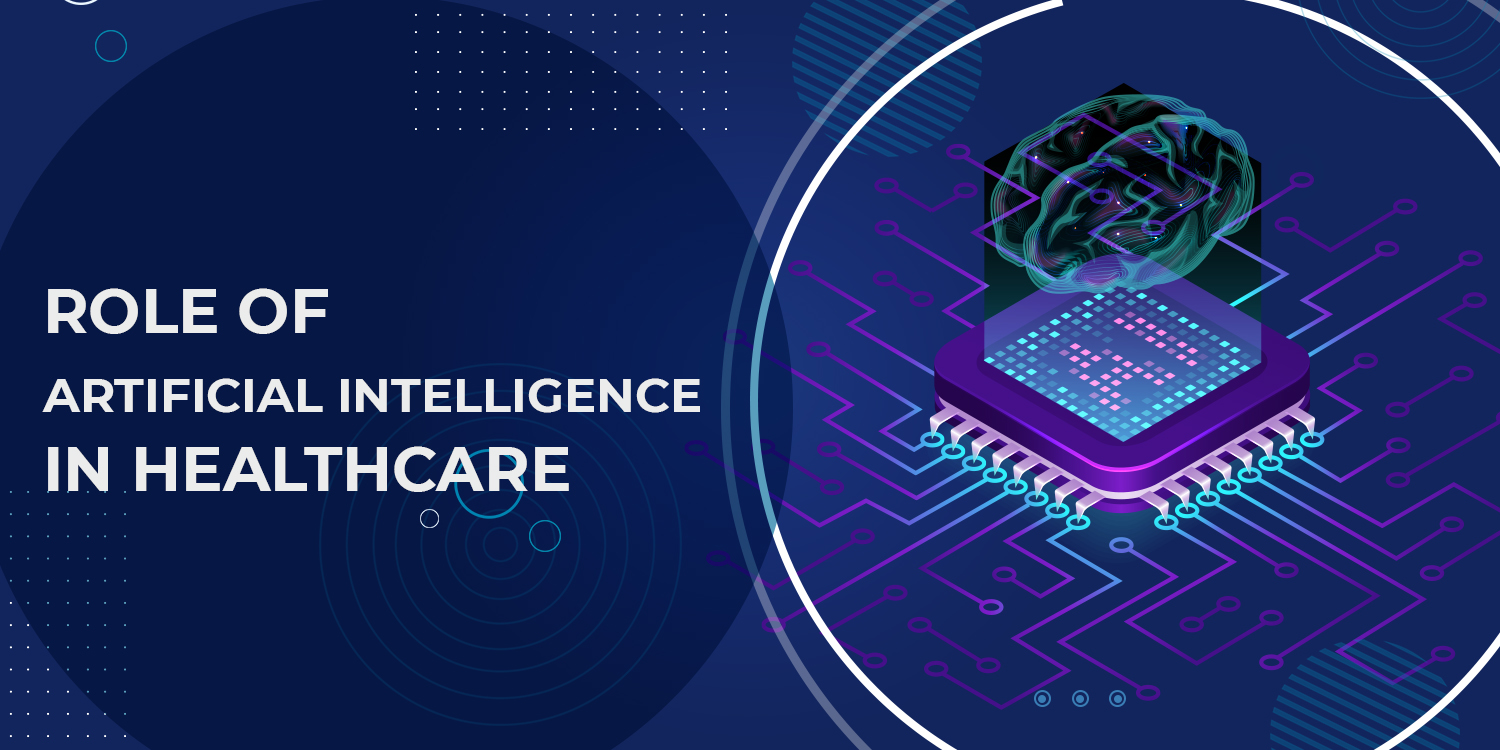Role of Artificial Intelligence in Healthcare: Detailed View
Artificial Intelligence in healthcare gaining popularity worldwide and is used in large organizations and in our daily lives. AI is covering every sector, and one among them is healthcare. The role of AI in healthcare has been a buzz topic of discussion, especially during COVID-19, and we don’t see any signs of a slowdown in the uptake of this technology.
Artificial Intelligence in healthcare has enormous and wide-ranging potential. The reason behind this is that it will ease the lives of patients and the entire healthcare sector. The future of healthcare and the future of ML and AI go hand in hand.
So, let us dive deep to know the roles of Healthcare in AI.
What is Artificial Intelligence?
Alan Turning first introduced the concept of Artificial Intelligence in the 1950s. Artificial Intelligence is a large-scale branch of computer science that deals with building intelligent machines that can perform tasks that require human Intelligence.
In simple terms, we can say Artificial Intelligence (AI) is intelligence demonstrated by machines. Artificial Intelligence has some sub-branches that help machines do what humans can do. They are:
- Machine learning
- Deep learning and
- Automation
AI is adopted because it provides better security, more safety, reliable quality, and increased productivity. Let us now understand what AI in Healthcare is?
Read More:
What is Artificial Intelligence in Healthcare?
Artificial Intelligence in healthcare refers to automated tasks performed using complex algorithms. Qualified healthcare professionals enter the data into a computer. Depending on the input from scientists or doctors, the Medical AI algorithm can automatically review, interpret, and even suggest solutions to this complex data. Artificial intelligence applications in healthcare are endless, and we can expect more in the coming years.
Benefits of AI in Healthcare
Artificial Intelligence offers enormous advantages over traditional techniques. So, let’s look at some of the points that represent some of the health benefits of Artificial Intelligence.
1. It will Reduce Human Mistakes
Errors are common when done manually. When the healthcare sector is completely exhausted due to continuous work, there are high chances of mistakes. But not to forget that healthcare data must be accurate, and there is no chance of making a mistake. So, this is where AI helps in completing complicated tasks, including inspection, data management, data storage, etc. This not only saves time, but the work is done more precisely.
2. It Helps in Accurate Decision Making
AI is a life-saver when patients need instant medications. Going through the records manually is time-consuming, and AI can analyze the records quickly and suggest the actions instantly. This is more effective, accurate, and less time-consuming than the manual task done by humans.
3. Virtual Health Assistants
This benefit is equally important for both doctor and patient. AI efficiently and quickly provides and analyzes data so that doctors can take quick actions. While on the other hand, AI helps patients keep them up-to-date about their medicines, diets, and health status.
4. It Helps Save Time
AI has almost covered all the responsibilities of doctors’ tasks, which helps in more efficient treatment. The time taken to conduct tests such as MRI, ultrasound, CT Scans, etc., has reduced as AI provides the results quickly, saving the time of patients and doctors.
5. Wearable Healthcare Technology
Wearable healthcare technology is adopting Artificial Intelligence for better treatment of patients. Smart watches use this technology to examine patients’ data that is directly shared with the doctors. This helps patients stay up to date about their health while doctors can keep an eye on their patient’s health. This reduces the hospital visits and also the workload of the professionals.
6. Healthcare Accessibility
Innovations in Artificial Intelligence can be used to develop innovative and efficient digital healthcare ecosystems. With the help of this technology, the detection of the symptoms of diseases can be done easily, and medications can be provided remotely.
7. Early Healthcare Risks Prediction
Artificial Intelligence in healthcare efficiently collects and stores patient data over time, which can be used to overview current and past health problems. Also, when Artificial Intelligence collects and interprets the data of millions of people, it can accurately predict potential health problems that may arise in the future.
8. AI-assisted Surgeries
There is a growing interest in Artificial Intelligence-based robotics in operations. AI surgical systems are helpful in making accurate and small movements. Also, complex surgeries are performed with lower risk side effects and minimal blood loss. Not only this, due to the accurately performed surgeries, patients also heal faster.
9. AI for the Disabled
Due to the advancement of Artificial Intelligence, people with disabilities are no longer so “disabled.” Exoskeletal robots based on Artificial Intelligence are the future for them. Co-robots are now a reality, and their built-in capabilities can help older people control their blood pressure, control their sugar levels, and provide reminders for daily medications. So, we can say that AI is hope for the disabled.
10. AI with AR & VR
Artificial Intelligence combined with augmented / virtual reality could change telehealth in this decade. AI with AR & VR technology is an excellent combination as it can help stroke victims alleviate motor deficiencies. The providers can use the data gathered using advanced technologies to develop the best and innovative plans for their patients.
11. Cost Reduction
According to reports, Artificial Intelligence can improve healthcare outcomes by 30-40% while reducing treatment costs by 50%! Improving accuracy and efficiency means fewer human errors. You do not need to run to the hospital to see your report to the doctors. Artificial intelligence personal assistants can advise patients on medical issues. They can even connect patients directly with doctors for advice, reducing the cost of visiting a clinic or hospital.
12. AI-based Fitness Schedules
To improve overall health, a person must follow their diet and exercise. Once an AI has access to medical data and can anticipate future problems, this technology can design a fitness routine that can be implemented regularly to minimize future risks. A small daily effort can alleviate future problems.
Future of AI in Healthcare
Undoubtedly, AI in telemedicine is promising, and AI will have many opportunities in healthcare in the coming years. According to reports, Artificial Intelligence in the healthcare market is expected to increase by 44.9% between 2020 and 2026.
Thus, AI is changing the healthcare sector in a better way. AI will telemedicine benefits a doctor, nurse, and patients in several ways, which indicates Artificial Intelligence will bring major changes to the healthcare sector.
Looking for a White Label Telehealth Platform? Connect with experts now!
Conclusion
Artificial Intelligence to date has contributed to almost all sectors, and healthcare is no exception. AI is trying its best to expand the healthcare sector. The purpose of Artificial Intelligence is to make computers particularly useful in understanding complex health issues. Yes, some risks need to be developed. However, Artificial Intelligence must be an integral part of healthcare in the long term, as Artificial Intelligence in healthcare offers a wide rang e of benefits.
Based on this, we will see more significant progress in the healthcare sector in the coming days due to Artificial Intelligence. AI has never failed to astonish us, and this time it is to improve patient care. So, if you are looking for healthcare services or white-label solutions, get in touch with our experts!




